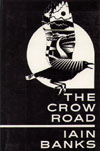
Because I haven’t been reading much recently, and to keep the backlog down and the back account up, I’ve had to be very selective of the books that I am purchasing. This led me to thinking about what authors and subjects I read that give me the most thrill/enjoyment. Even though I haven’t been reading many short stories lately, I plan to continue to pick up the annual best-of collections edited by Gardner Dozois and Ellen Datlow/Terri Windling, for when I do feel like reading a short story, their volumes always fit the bill. Narrowing down longer work is a little harder. Over the years I’ve had many “favorites,” and it shows in my library. Stephen King is probably the most obvious example. While I do not regret having read his novels, they just aren’t what I’m looking for in a book anymore.
I narrowed the list down to three authors the other day, and looking at it now, I’m waffling. In no particular order, one of the selectees was Tom Holt. I’ve been disappointed with a couple of Holt’s recent books, buth then the last one was fun, and I just got the latest, and it looks like it will be good. Jonathan Carroll is another obvious choice–as soon as a new Carroll is in my hands, it doesn’t stay unread for long. Lastly, there’s Iain Banks.
The thing I like best about Banks is that he moves so effortlessly in and out of genre. He can write some powerful, yet trappings-full, SF at one time, and then the next novel is a mystery or a thriller without a spaceship in sight. No matter what genre he’s in, his writing is excellent. Banks should be the genre-ghetto poster boy– see what we can be like freed of these shackles?–but I’m not sure that all writers, even those who write SF well, can match his fluency in subject changing while maintaining the quality level.
The Crow Road is a family novel that’s also a good mystery. Banks shifts from the first person point of view of Prentice McHoan to the first and third person POVs of his father, uncle, and others. While people are dying here, as they tend to do in most mystery novels, there is a remarkable difference. Because these characters are not detectives or police, hardened to death, the emotions are raw and realistic. Even in mysteries where the protagonist is a “normal” character, the author may still be thinking sequel in the back of their mind. Banks isn’t, and it shows in the way his plot and characters make sense, while retaining that basic mystery of life that people do not make sense.
I think this is the closest (and thus, best) that Banks has come to matching Jonathan Carroll’s knack for portraying characters who are just plain interesting. I had a tough time putting this book down (when I needed to get some sleep), because I continued to want to know more and more about the characters.
[Finished 26 October 1994]
